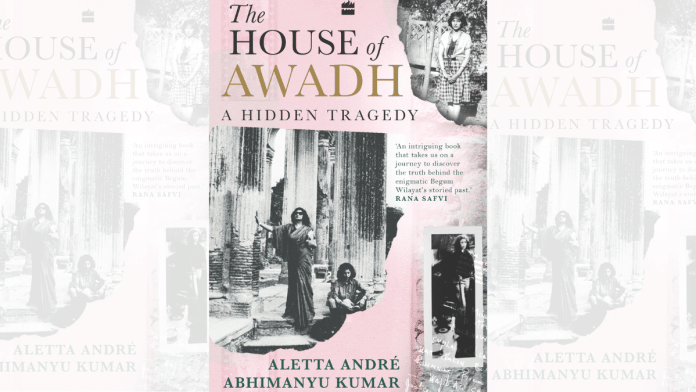In the quiet expanse of Delhi’s Ridge Forest stands Malcha Mahal, a former hunting lodge that became home to a family wrapped in mystery. In their new book, The House of Awadh, journalists Aletta André and Abhimanyu Kumar trace the lives of Begum Wilayat Mahal and her children, Princess Sakina and Prince Ali Raza. Claiming to be descendants of the House of Awadh, they lived in seclusion, their story oscillating between heritage and uncertainty.
Through extensive research, archives, and interviews, The House of Awadh pieces together their journey—from their arrival at New Delhi Railway Station in 1975 to their isolated years in Malcha Mahal. Were they rightful heirs to a lost kingdom, misunderstood figures, or simply impostors? The book delves into their claims while exploring broader themes of displacement, identity, and historical shifts in South Asia.
André and Kumar spent years researching and speaking to people connected to Malcha Mahal. Their book brings together historical context and personal narratives, presenting a balanced account of a complex story.
Abhimanyu Kumar is an Indian journalist and poet with experience covering politics, culture, and minority issues. His poetry collection, Milan and the Sea, was published in 2017, and he has contributed to several anthologies. He lives between New Delhi and Deventer, the Netherlands, with co-author Aletta André and their two children.
Aletta André is a Dutch historian and journalist who has reported on South Asia for over fifteen years. Her debut youth novel, Het meisje dat door India fietste, focused on the struggles of migrant laborers during the COVID-19 pandemic. After spending more than a decade in New Delhi, she returned to the Netherlands in 2024.
Published by HarperCollins India, ‘The House of Awadh’ will be released on 12 March on SoftCover, ThePrint’s online platform for launching non-fiction books.
The book has received positive reviews. Historian Narayani Basu describes it as a “sweeping saga that is, by turns, both melancholy and fascinating.” Author and historian Rana Safvi calls it an “intriguing journey” into the life of Begum Wilayat Mahal.
A blend of history and memory, The House of Awadh offers insight into India’s lost royalty, colonial legacies, and the search for identity in a changing world.
Also read: New book presents Ghalib’s couplet to modern audiences






